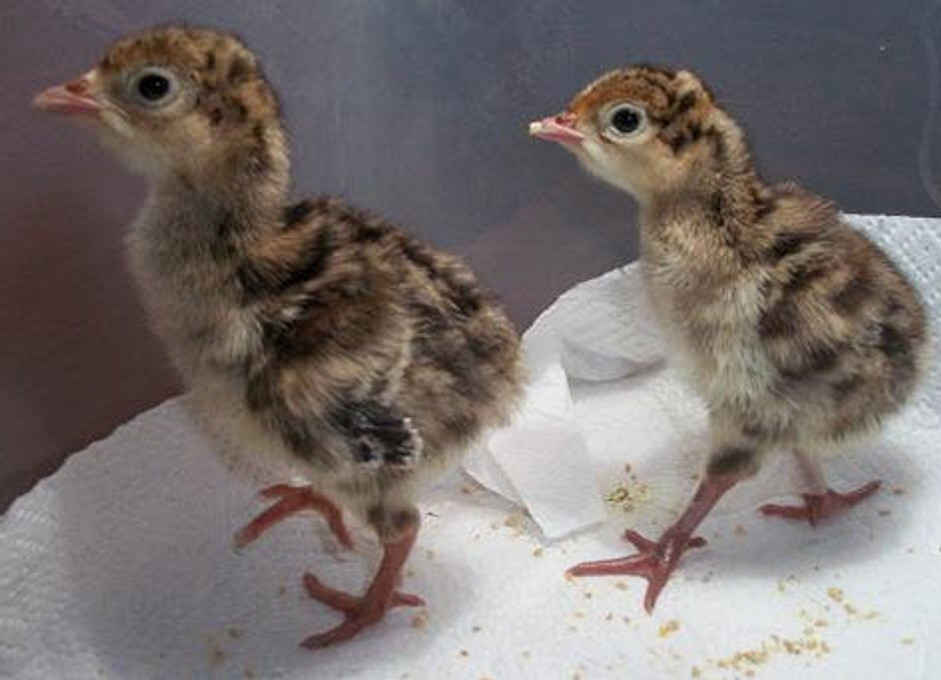
How to Raise Baby Turkeys
Posted by Grange Co-op on 28th Aug 2015
 Baby Turkeys (turkey poults) are fairly easy to raise, if you follow a few simple steps.
Baby Turkeys (turkey poults) are fairly easy to raise, if you follow a few simple steps.
Turkey poults love heat. They will be happiest if you keep their brooder temperature at 95-100 degrees for the first week, then lower the temperature by about 5 degrees per week until they are fully feathered, approximately 6-8 weeks old. They will still appreciate a heat lamp at night for a few weeks after this period if the nights are cool. You can tell if they are comfortable by the way they arrange themselves in the brooder: all clumped under the heat source, they are too cold; all far away from the heat source, they are too hot; spread all over the brooder, they are comfortable. They will also cheep if they are cold or ill, and will be fairly quiet if they are happy. Always make sure they have room to get away from the heat.
Keep them clean and dry. Pine shavings or rice hulls make good bedding. Never brood them on slick surfaces like newspaper. Never give a turkey poult cold water - cold water can be deadly to turkey poults. The water should always be lukewarm, and it is a good idea to add a vitamin and electrolyte supplement to their water. You can also get them eating and drinking well by placing shiny colored marbles in the feed and water to get their attention. Change waterers daily or when they get dirty.
Turkeys need higher protein than Chickens. The poults will need a 28% protein starter for the first 6-8 weeks. We recommend looking for specialized turkey or wild game bird feed. After that, you can change them over to a feed with an 18% protein. Grange Co-op offers Rogue All-In-One ( 25AIO-50AIO). Never feed them layer pellets, as the calcium level is too high for growing birds. When they are about 3 weeks old, you can start sprinkling a little chick grit on their feed. Do not give them scratch until they are at least 8 weeks old, then you can give them a little as a treat. Grange Co-op offers Rogue Hen Scratch (50HS). When the hens begin to lay they should have free choice access to grit and oyster shell. They will appreciate greens, bread, garden trimmings and other treats as well.
Turkeys are very personable birds and you can easily teach them to eat out of your hand, come to your call, and they will often follow you around, begging for treats and attention. The more you handle them, the tamer they will become. Contrary to popular belief, turkeys do not drown in the rain, although young birds have been known to become ill and die if they become wet and chilled. They can be a very enjoyable bird to have around.
Heritage turkeys, the old-style varieties that are still naturally mating, are long-lived and hardy. Broad-breasted varieties are typically used only for meat, so they are not meant to be raised beyond 16 to 20 weeks. If you wish to use heritage turkeys for meat birds, it will take 6-8 months to grow them to eating size. They also make good breeding or show stock and pets. They are much more disease-resistant than broad-breasted varieties, and will do well on free-range or in pens.
